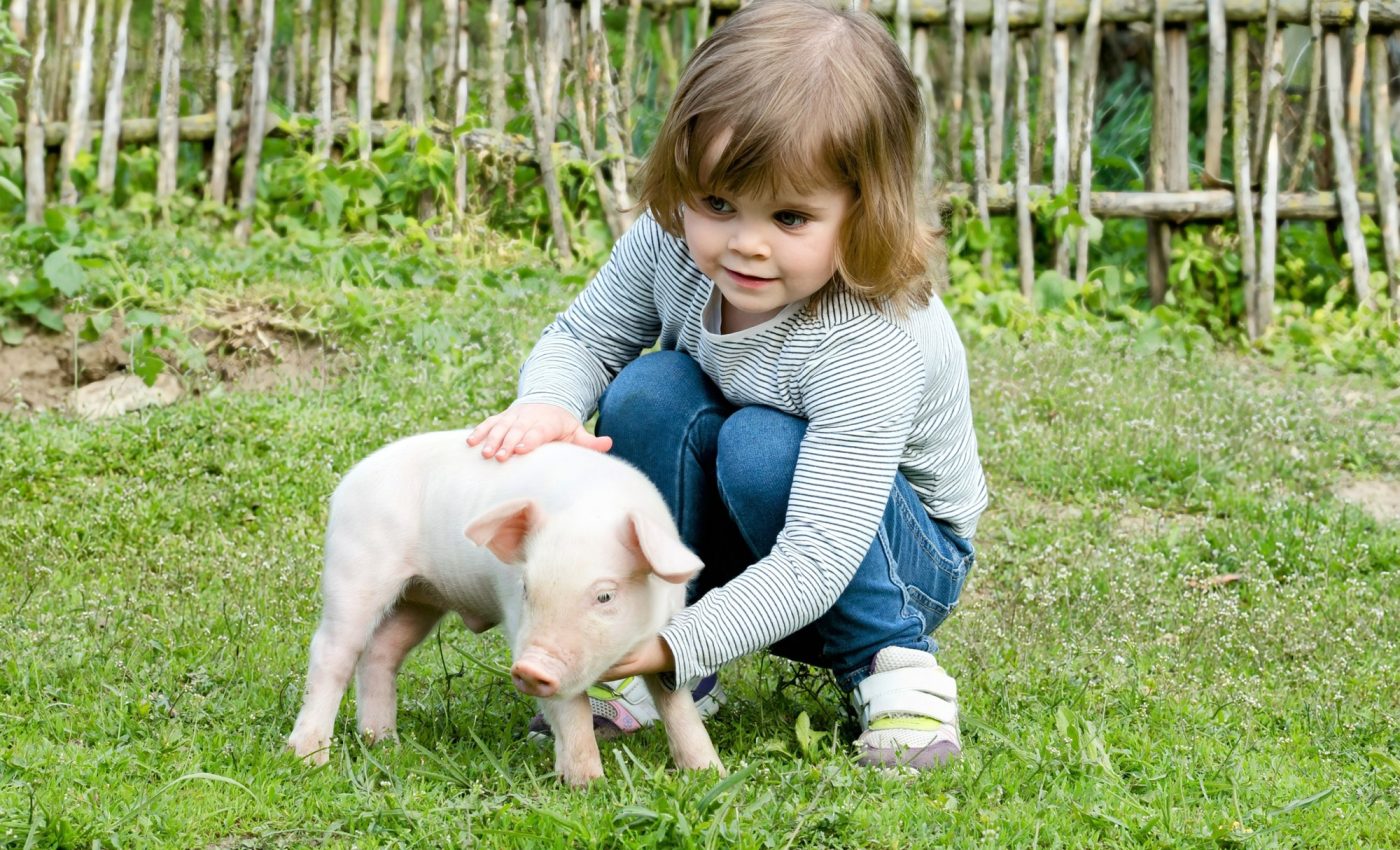
Kids who identify farm animals by name are less likely to eat them
A chicken named Cluck, a turkey called Tom, or a pig introduced as Penny – the simple act of giving a name and pointing out individual qualities may significantly change young children’s attitudes towards animals.
This intriguing concept was demonstrated by researchers from SWPS University who suggest that assigning distinct identities to animals actually makes children perceive them as more similar to humans.
Rather than seeing them as a source of their next meal, children might instead prefer to foster friendships with these named creatures.
Science behind naming animals
To lend substance to these findings, we turn to Dr. Aleksandra Rabinovitch, an expert in the Faculty of Psychology at SWPS University.
Dr. Rabinovitch sheds light on our relationship with animals, particularly edible ones, and its deep-rooted connection with our dietary choices.
Dive into the world of children’s shows and stories, and you’ll find animals with unique names, distinct characteristics, and individual preferences playing prominent roles.
An example that springs to mind is the widely cherished animated series, “Peppa Pig.” But, does this approach to characterizing animals encourage children to see them as relatable beings and discourage them from associating them with meat?
The cognitive dissonance dilemma
The dilemma lies in the recognition that consuming meat causes harm to animals, something humans, generally compassionate towards animals, wrestle with.
Dr. Rabinovitch explains that to soothe this cognitive dissonance, people often resort to certain defense strategies without altering their existing dietary practices.
The strategies may include denying that edible animals possess human-like mental attributes, such as the capacity to experience suffering. The result? The more meat products people consume, the less empathy they tend to show towards these animals.
Eating meat: A lesson for little ones
Surprisingly, children, before understanding the origin of meat, form a unique relationship with animals.
They are drawn towards animals that appear “nice” and relate to them on an emotional level, much like they would with fellow humans. However, children certainly do not associate these friendly creatures with their dinner plate.
According to foreign research, while an impressive number of American children aged 4–7 years considered pigs (73.3%) and chickens (65.9%) as “not OK to eat,” approximately 30% had difficulty accurately determining the origin of animal-based products.
Impact of animals with names
Despite these trends, there has been no focused attempt to investigate how personalizing animals by ascribing human characteristics to them could influence a decrease in the acceptance of meat consumption.
Thankfully, that’s where the team of researchers from the Social Behavior Research Center at SWPS University stepped in, dissecting this issue.
Children’s perception of named animals
A total of 208 preschool children aged 5–6 years were part of two studies involving interactions with pictures of pigs and chickens. The studies were carefully designed to unveil how children perceive animals before and after assigning them individual identities.
For instance, in one scenario, some children were shown a photo of a pig named Lelka, given personal habits and preferences.
The children were then asked about their willingness to foster a relationship with the pig or consume its meat. A similar procedure was conducted with chickens in a separate study.
Surprising findings
The findings were quite telling. A significant number of children (79% in the case of pigs and over 84% for chickens) found an animal unique when it was given a name and individual characteristics.
These children expressed a stronger desire to befriend such an animal and a diminished appetite for dishes made with its meat.
Dr. Rabinovitch comments on the results, stating that identifying each edible animal by name and emphasizing its uniqueness through personal characteristics can significantly alter children’s attitudes towards it. These findings hold steady regardless of whether the animal is a pig or a chicken.
What does this all mean for parents and educators? Perhaps it’s time to reconsider how we introduce animals to children, especially if we strive to foster a future where empathy for all creatures reigns supreme.
Ultimately, the power to shape children’s perceptions and attitudes towards animals lies in our hands, or rather, our words.
The study is published in the journal Appetite.
—–
Like what you read? Subscribe to our newsletter for engaging articles, exclusive content, and the latest updates.
Check us out on EarthSnap, a free app brought to you by Eric Ralls and Earth.com.
—–













